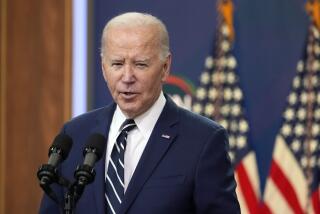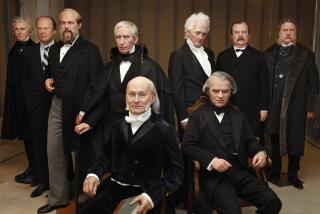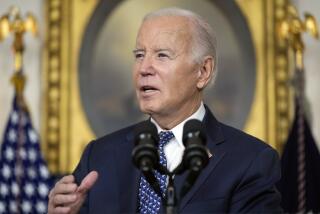Job evaluation: George W. Bush
IT’S THAT TIME of year, when the drones of corporate America gather their No. 2 pencils and call over to human resources for all the personnel files. The dirty little secret (or maybe it’s not so secret) is that managers resent these yearly job performance evaluations as much as employees do. But why let the private sector have all the fun? An election is a kind of evaluation, of course, but what if our elected officials had to fit their year’s accomplishments on the same kind of form with which millions of the rest of us are familiar? For President Bush, the results would not be encouraging.
*
Knowledge of job: Below expectations. Despite describing himself as “the decider,” employee often abdicated important decisions to others, as in his insistence that he could do nothing about prison conditions at Guantanamo Bay without judicial branch input.
*
Job effectiveness: Below expectations, even his own, and not just in his controversial and poorly planned takeover of despotic foreign operation (also see previous evaluations). Confirmation of favored candidate for a top-level judicial branch appointment was a major achievement. But failed to rally support in legislative branch and among own partisans for positions on which he was in the right, such as his call for comprehensive immigration reform.
*
Critical thinking skills: Meets expectations, which were low. Instead of building bridges to opponents within the legislative branch on foreign policy, he demonized them with this election-year rant: “The Democrat [sic] approach comes down to this: The terrorists win and America loses.” Failed to dismiss key architect of war until after Republicans were routed in midterm elections.
*
Works well with others: Meets expectations. More successful at staking out common ground with headstrong allies of own party than at seeking out compromise with extra-party rivals who may actually be useful to policy goals. Needlessly provoked Democrats with renomination of partisan flame-thrower to major international body even after it was clear that nominee was unfit for the job. Unclear at the end of this performance period whether he will accept any advice from the bipartisan Iraq Study Group.
*
Financial management: Exceeds expectations. Federal budget deficit is smaller than expected, though employee’s insistence that this is a result of his tax cuts is unpersuasive. Also, after the election, indicated that he was open to fresh talks with Democrats about Social Security.
*
Areas for improvement: New management in legislative branch will require considerable improvement in people skills, especially but not exclusively in identifying a “way forward” in Iraq. To borrow a phrase associated with one of employee’s predecessors, present employee needs to adopt a “kinder, gentler” rhetorical style, one that acknowledges past mistakes and doesn’t demonize those who think differently.
More to Read
Start your day right
Sign up for Essential California for news, features and recommendations from the L.A. Times and beyond in your inbox six days a week.
You may occasionally receive promotional content from the Los Angeles Times.






